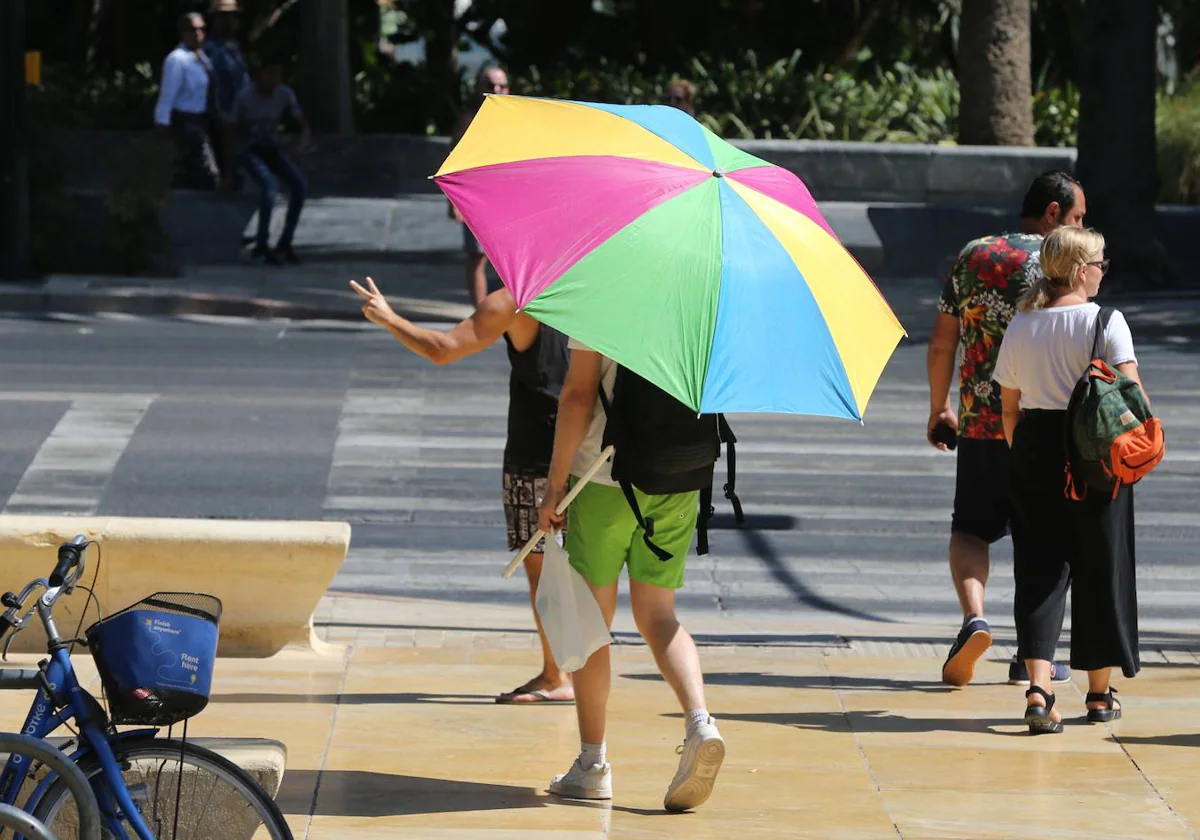Concerns raised as climate on Costa del Sol goes from 'hot to torrid' during summer months
Scientists are calling for more measures to reduce temperatures, especially in cities and large towns, with less asphalt and more green areas
An increase in temperatures along the Costa del Sol has weather experts worried the climate has switched from "hot to torrid" during the summer months.
The rise is noticeable, and in the case of Malaga and the Costa del Sol, iit is coupled with very high humidity levels. "The combination of both variables, temperature and humidity, leads us to conclude that the climate has gone from being hot to torrid during the summer months," said Enrique Salvo, professor, botanist and director of the chair of climate change at the University of Malaga (UMA).
Future forecasts have caught the attention of researchers from the Global Health Institute and the international research group on health and climate change. "Either we react now, or Malaga is going to be an inhospitable city during the summers," Salvo said.
The researcher pointed out the sea off Malaga is warming very rapidly. The temperatures of the sea water set an all-time record again this summer, according to the Spanish institute of oceanography (IEO). The waters off Fuengirola reached the highest temperature on record since the organisation started taking measurements back in 1984: For the first time in 40 years they registered 27C. The Puertos de Estado buoy in the harbour of Malaga city also reached 28.3 degrees on two occasions at the end of August.
The forecast shows that during summer, there will be temperatures that will make it difficult to sleep every night.
"The sea is a pressure cooker and this changes the Atlantic currents that have benefited us from a climatic point of view and that cooled us, for example in Marbella and Rincón de la Victoria, and gave us a moderate and comfortable climate."
On this point, Salvo warned about the impact, especially on overnight temperatures. "The forecast is that the three summer months will have nights that will range from tropical to hellish, so you can only sleep with the air conditioning... and all this in a context of growing energy poverty," he said.
'Preparing the city'
The researcher pointed out nights above 20 degrees are tropical, while those above 25 degrees or more are referred to as "torrid" and a "hellish night" refers to the rare occasions when the mercury does not drop below 30.
"We have to prepare the city, from now until 2050 we have to make an effort to transform it to combat this, with less pavement and more trees," Salvo said. "Our optimum reaches a maximum point of 35 degrees, from there we start to be unproductive and the nervous system is affected."
"In the urban heat island maps, we are seeing areas of Malaga with temperatures that are up to two degrees above average, and up to 56 degrees in playgrounds with black rubber flooring," salvo added. For this reason, he called on the authorities to follow the example of other cities, where they have already begun to remove sections of roadways and replace them with green spaces.
What temperatures can be reached in the province? Jesús Riesco from Aemet, Spain's state weather agency, said: "It depends on the measures taken at a global level. Even if we were to radically stop pumping gases into the atmosphere right now, it would still continue to rise. But if you don't cut it, it will go up even further". The uncertainty as to whether by the end of the century temperatures will have risen by 2.5, 3 or 4 degrees, depends on the measures taken, he added.

